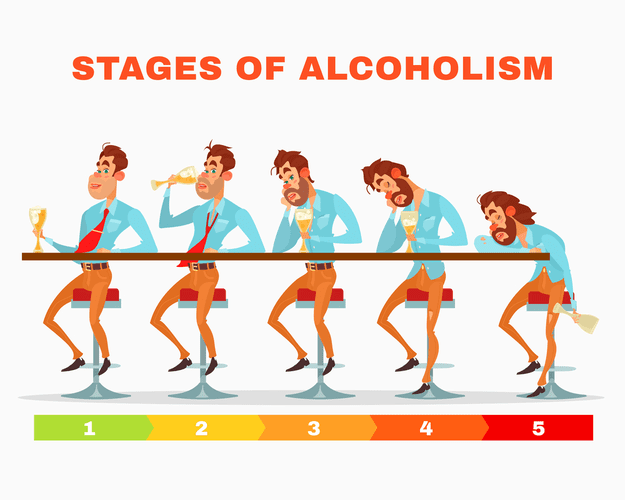Treatment tailored to individual needs is fundamental for long-term sobriety. The stigma needs to be challenged by promoting kindness and creating comfortable spaces for discussions. Educating others about addiction and providing accurate information is key in dispelling the stigma surrounding this illness.
Are You Seeing the Signs? A Comprehensive Guide to Sex Addiction Symptoms
- Many people believe that because prescription drugs are legal, they are inherently safe and non-addictive.
- By debunking these myths about aging, we can foster a better understanding of the aging process and promote healthy aging practices.
- Shrouded in stigma and fueled by misinformation, addiction remains a widely misunderstood disease that continues to ravage lives and communities alike.
The journey to recovery marijuana addiction is multifaceted, involving physical withdrawal symptoms, emotional turmoil, and possible mental health issues. For many, quitting is not just a matter of willpower but requires professional intervention, therapy, and sometimes medication-assisted treatment. Recognizing the challenges individuals face in recovery is crucial for providing them with the necessary encouragement and support to persevere through the process. Understanding the reality of drug and alcohol addiction is the first step to supporting someone—or yourself—through recovery. Dispelling these myths about addiction is crucial for a more compassionate, supportive environment for those facing substance use disorders.

Treatment
When it comes to addiction treatment, there are several myths and misconceptions that can hinder understanding and hinder progress towards recovery. Let’s explore and debunk some common myths surrounding addiction treatment. Another myth surrounding addiction is the belief that it only affects certain individuals. In reality, addiction can impact individuals from all demographics and backgrounds. It does not discriminate based on age, gender, race, or socioeconomic status. Addiction can happen to anyone, and it is essential to debunk the notion that certain populations are immune to addiction.
Simply relying on willpower or self-recovery is often ineffective in managing addiction. It is essential to seek professional help and access evidence-based treatments tailored to the individual’s specific needs. Myths about drugs and alcohol abuse often arise from cultural beliefs, media portrayals, and a lack of accurate information. These myths contribute to misunderstandings, stigma, and misinformation about substances, potentially harming individuals and communities. As a result of scientific research, we know that addiction is a medical disorder that affects the brain and changes behavior. We have identified many of the biological and environmental risk factors and are beginning to search for the genetic variations that contribute to the development and progression of the disorder.
Can medication-assisted treatment help with opioid use disorder, alcohol abuse, or drug abuse?

Prescription drugs are only safe when taken according to a strict set of guidelines established by the FDA, and passed on through your doctor via prescribing instructions. Treatment options for drug or alcohol abuse are diverse and tailored to suit the needs of each patient. They are also comprehensive and multidimensional, addressing not only the physical aspects of addiction but also the psychological, emotional, and social aspects. With proper treatment, recovery from addiction is very attainable. Many people successfully overcome addiction and lead fulfilling and substance-free lives.
Life without drugs or alcohol is possible, and it is important to address the reality of recovery by dispelling myths and offering ongoing support for relapse prevention. Hidden addiction is when a person has substance abuse or addictive behaviors that others can’t see. This lack of visibility feeds myths and misunderstandings about addiction. In reality, effective addiction treatment is as unique as the individuals seeking help.
Alcohol is acceptable and easily accessible; you could even say it is celebrated in American society. Millions partake in drinking as a social activity, and unfortunately this can be where alcohol addiction starts. The forefront of addiction and recovery is inundated with outdated and blatantly false information.
Introduction to Addiction Myths

The first step in seeking help for addiction is recognizing that you have a problem and being willing to reach out for support. This can be a difficult and scary step, but it is crucial in starting your journey towards recovery. It is often believed that those struggling with addiction can simply quit using whenever they choose to do so. However, the reality of addiction involves a complex interplay of biological, psychological, and social factors that make quitting extremely difficult without professional help. Treatment helps individuals build the skills and tools necessary to maintain sobriety, but recovery is a continuous journey. Patience, persistence, and support are essential for long-term success.
- Remember, it’s never too late to adopt healthy habits and make positive changes that contribute to a happy and vibrant life.
- For instance, someone struggling with opioid addiction might benefit from medication-assisted treatment (MAT) combined with cognitive-behavioral therapy.
- MAT can help manage withdrawal symptoms and cravings, enhancing the recovery process.
- Older adults can take steps to preserve their autonomy and overall well-being.
Stereotyping based on physical features only reinforces stigmas, and prevents individuals from seeking help. It’s essential to recognize that people with addiction are not inherently myths about addiction bad or deserve punishment; they are people struggling with a true illness that needs proper treatment and help. Additionally, prescription drugs can have damaging effects if used incorrectly or without expert advice. It does not mean failure, but rather serves as an opportunity to adjust and grow in the treatment plan.
If you or someone you love is struggling with alcohol abuse, cocaine addiction, hard drugs, or cooccurring disorders, help is available—and recovery is possible. Our programs include safe alternatives to quitting cold turkey, evidence-based relapse prevention, and both inpatient rehab and online therapy options. Guided by our mission, vision, and values, we combine medical care, behavioral health support, and community education to empower people with addiction to heal and build a better future.
Misconceptions exist that affordable treatment for addiction may not be effective. But, it is important to know that treatment is not a cure but the first step to wellness. Therapy, counseling, support groups, medications, and holistic approaches are all affordable options.
At Gateway Rehab, we provide comprehensive addiction treatment services to help individuals break free from the grips of addiction and achieve long-term recovery. Our team of medical professionals, therapists, and support staff are dedicated to helping patients achieve successful recovery through evidence-based practices and ongoing support. Addressing these myths is essential to creating a culture of understanding and support around addiction. By challenging misinformation, we can break down stigma, encourage people to seek help, and foster a more compassionate society. If you or someone you love is struggling https://card.travelindiatourism.com/life-expectancy-with-fatty-liver-disease-what-to/ with addiction, remember that recovery is possible. Reach out to a trusted source or treatment center like Dunham House for support.



